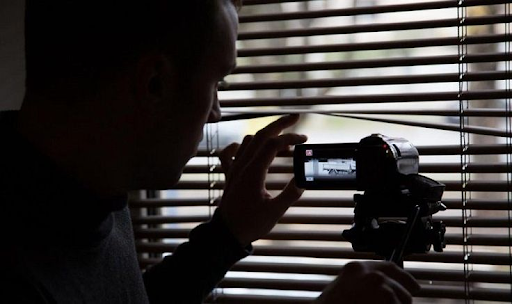Legal Implications of Surveillance by Private Investigators
The use of private investigators (PIs) for surveillance has become increasingly common across various sectors, including legal disputes, corporate investigations, and personal matters. While surveillance can provide valuable insights and evidence, it is essential to understand the legal and ethical boundaries that govern these activities. This guide explores the legal implications of surveillance by private investigators, highlighting key laws, privacy concerns, and ethical issues.
Overview of Surveillance by Private Investigators
Surveillance by private investigators involves monitoring individuals or activities to gather information. Understanding the legal and ethical considerations surrounding these practices is crucial for both investigators and clients.
What is Surveillance in the Context of Private Investigation?
Surveillance in private investigation refers to the systematic observation of individuals, locations, or activities to collect information. This can include:
- Physical Surveillance: Observing a person's movements and behaviors in person.
- Electronic Surveillance: Using devices such as cameras or GPS trackers to monitor activities.
- Digital Surveillance: Monitoring online activities and communications.
Private investigators use these methods to gather evidence for various purposes, including legal cases,
fraud investigations, and personal matters. It is essential for PIs to understand the legal framework governing these surveillance activities to avoid violating privacy laws.
Common Reasons for Surveillance by Private Investigators
Private investigators conduct surveillance for numerous reasons, including:
- Legal Cases: Providing evidence in civil or criminal cases, such as proving infidelity or uncovering fraud.
- Corporate Investigations: Monitoring employee activities or investigating corporate misconduct.
- Personal Matters: Resolving personal disputes or verifying claims.
Each of these scenarios requires careful consideration of legal and ethical boundaries to ensure that surveillance activities are conducted within the law.
Legal Framework Governing Surveillance by Private Investigators
Surveillance by private investigators is subject to various laws and regulations designed to protect privacy and ensure ethical conduct. Understanding these laws is essential for compliance and avoiding legal issues.
Key Laws and Regulations
In Australia, several key laws regulate surveillance activities conducted by private investigators:
- The Privacy Act 1988: This Act regulates the collection, use, and disclosure of personal information. Private investigators must comply with the Australian Privacy Principles (APPs), which govern how personal information is managed.
- The Surveillance Devices Act 2004: This Act sets out rules for the use of surveillance devices, including audio and visual recording. PIs must obtain the necessary authorizations before using such devices.
- The Telecommunications (Interception and Access) Act 1979: This Act controls the interception of telecommunications and communications data. PIs must adhere to restrictions on accessing phone records and other communication channels.
These laws establish the legal boundaries for surveillance activities and ensure that private investigators operate within the law.
Privacy Rights and Invasion of Privacy
Privacy rights are a fundamental concern in surveillance activities. Key considerations include:
- Right to Privacy: Individuals have a right to privacy, which includes protection from unauthorized surveillance. Private investigators must respect this right and avoid intrusive monitoring.
- Invasion of Privacy: Conducting surveillance without proper authorization or exceeding legal boundaries can result in an invasion of privacy. This can lead to legal consequences and damage to reputations.
Understanding privacy rights helps ensure that surveillance activities are conducted ethically and within legal limits.
Legal Consequences of Unlawful Surveillance
Unlawful surveillance can result in serious legal consequences for private investigators, including:
- Legal Penalties: Violating surveillance laws can lead to fines or legal actions. For instance, unauthorized use of surveillance devices may result in substantial penalties under the Surveillance Devices Act.
- Unlawful Surveillance: Engaging in surveillance activities without proper authorization or exceeding legal limits can result in criminal charges or civil lawsuits.
- Legal Ramifications: The legal ramifications of unlawful surveillance may include restrictions on investigative activities or loss of licenses.
Avoiding these legal consequences requires careful adherence to relevant laws and regulations.
Ethical Considerations in Private Investigator Surveillance
In addition to legal considerations, ethical issues play a significant role in surveillance by private investigators. Balancing client interests with ethical obligations is crucial for maintaining professional integrity.
Balancing Client Interests with Ethical Obligations
Private investigators often face ethical dilemmas when conducting surveillance. Key considerations include:
- Client Confidentiality: PIs must maintain client confidentiality while ensuring that surveillance activities are conducted ethically. This includes protecting sensitive information and respecting privacy.
- Ethical Dilemmas: Investigators may encounter situations where client interests conflict with ethical considerations. It is essential to navigate these dilemmas carefully to avoid unethical practices.
- PI Ethics: Adhering to professional ethics and standards is vital for maintaining trust and credibility in the investigative field.
Balancing client interests with ethical obligations helps ensure that surveillance activities are conducted with integrity and respect for privacy.
Case Studies: Ethical vs. Unethical Surveillance
Examining case studies of ethical and unethical surveillance practices provides valuable insights into the complexities of private investigation:
- Ethical Surveillance Cases: Cases where private investigators followed legal and ethical guidelines, such as obtaining proper authorizations and respecting privacy, demonstrate best practices.
- Unethical Surveillance Cases: Examples of unethical surveillance, such as unauthorized monitoring or invasion of privacy, highlight the importance of adhering to legal and ethical standards.
These case studies emphasize the need for ethical considerations in surveillance practices.
Best Practices for Private Investigators Conducting Surveillance
To ensure compliance with laws and ethical standards, private investigators should follow best practices for surveillance:
Ensuring Compliance with Laws and Regulations
Private investigators must ensure that their surveillance activities comply with relevant laws and regulations:
- Compliance in Surveillance: Adhere to legal requirements for surveillance, including obtaining necessary authorizations and following restrictions on monitoring activities.
- PI Legal Compliance: Ensure that all surveillance practices align with legal guidelines and privacy laws.
- Lawful Surveillance: Conduct surveillance activities within the legal framework to avoid potential legal issues and maintain ethical standards.
Compliance with laws and regulations is essential for conducting lawful and ethical surveillance.
Guidelines for Ethical Surveillance Practices
Following ethical guidelines helps maintain professional integrity and respect for privacy:
- Ethical Guidelines: Implement guidelines for ethical surveillance practices, including respecting privacy rights and maintaining client confidentiality.
- Best Practices for PIs: Adopt best practices for conducting surveillance, such as obtaining informed consent and avoiding intrusive monitoring.
- Ethical Surveillance: Ensure that surveillance activities are conducted ethically and with respect for individuals' rights.
Adhering to ethical guidelines helps ensure that surveillance practices are conducted responsibly and with integrity.
Conclusion
Understanding the legal and ethical implications of surveillance by private investigators is crucial for conducting lawful and responsible investigations. Adhering to privacy laws, balancing client interests with ethical obligations, and following best practices are essential for maintaining professional integrity and avoiding legal issues.
If you are considering hiring a private investigator for surveillance, it is advisable to seek professional legal advice to ensure compliance with all relevant laws and regulations. For more information on surveillance laws and practices, contact Sydney Private Investigators.
FAQs About Legal Implications of Surveillance by Private Investigators
What are the legal boundaries for surveillance by private investigators?
Legal boundaries for surveillance include complying with privacy laws, obtaining necessary authorizations, and respecting restrictions on monitoring activities.
Can private investigators legally conduct surveillance in all situations?
No, private investigators must adhere to legal and ethical guidelines, including obtaining proper consents and avoiding intrusive monitoring.
What are the privacy rights of individuals under surveillance by private investigators?
Individuals have a right to privacy, which includes protection from unauthorized surveillance. Private investigators must respect these rights and avoid invasive monitoring.
What are the potential legal consequences for unlawful surveillance by private investigators?
Legal consequences may include fines, criminal charges, and restrictions on investigative activities.
How do ethical considerations affect the work of private investigators?
Ethical considerations influence surveillance practices, including maintaining client confidentiality and respecting privacy rights. Adhering to ethical guidelines helps ensure responsible and professional conduct.




